ID forgery
Table of Contents
- Introduction: What Is ID Forgery and Why It Matters
- ID Forgery in a Changing World: Understanding the Threat Landscape
- Product Overview: Features That Differentiate a Quality ID Forgery Detection Tool
- Market Landscape: Growing Demand for Anti-Forgery Technology
- Target Audience: Who Needs ID Forgery Detection Services the Most?
- Competitive Analysis: How ID Forgery Solutions Compare
- Technologies and Innovations Driving the Market
- Building Trust: Why Authenticity Is Essential in the Digital Era
- Legal and Regulatory Insights: Compliance as a Growth Opportunity
- Case Studies: Success Stories with Anti-Forgery Solutions
- Conclusion: The Future of ID Security and Your Role in It
1. Introduction: What Is ID Forgery and Why It Matters
In an increasingly interconnected and digitized world, identity verification has become a fundamental part of daily life. From logging into online accounts to purchasing goods or accessing public services, proof of identity is required at every step. However, with this reliance on identity comes a significant risk: ID forgery.
ID forgery refers to the illegal practice of creating or altering identification documents such as passports, driver's licenses, bank cards, or personal identity credentials. Fraudsters rely on forged documents to gain unauthorized access to financial systems, commit crimes, or assume false identities. This article dives deep into how modern ID forgery solutions address these challenges, ensuring security and authenticity.
2. ID Forgery in a Changing World: Understanding the Threat Landscape
In today's digital economy, both individuals and institutions are exposed to various types of identity fraud. Whether it’s counterfeit driver's licenses used by underage individuals, falsified passports for illegal immigration, or synthetic identity fraud where real and fake information is combined—ID forgery has become more advanced than ever before.
The Rising Incidence of ID Theft and Fraud
According to the latest data from cybersecurity agencies, fraudulent identity-related crimes cost businesses and governments over $40 billion annually. Fraudulent credentials open the door to financial theft, terrorism, and human trafficking, all posing massive security threats.
Given the proliferation of dark web markets, purchasing forged IDs has become disturbingly simple, with new criminals acquiring advanced printing tools. A growing concern is digital forgery, where high-quality, seemingly legitimate documents are generated using stolen templates and falsified data.
3. Product Overview: Features That Differentiate a Quality ID Forgery Detection Tool
Not all ID forgery detection tools are made equal. The best products in this category incorporate advanced AI-powered software, image recognition, and blockchain verification to ensure that documents are authentic. Below are some of the key features that define high-end ID forgery detection products:
- Multi-Layered Document Authentication: Scans documents at several levels—microprint, holograms, security features—ensuring it cannot be easily bypassed by forgeries.
- AI-Powered Pattern Recognition: Detects irregularities in fonts, image placements, or tampered data fields, flagging suspicious documents in real-time.
- Optical Character Recognition (OCR) Integration: Captures text from scanned IDs for instant comparison with original databases.
- Database Cross-Referencing: Automatically checks with local and international databases to verify personal information or flag blacklisted individuals.
- Blockchain-Backed Data Protection: Ensures the integrity of records through decentralized, tamper-proof systems.
- Cloud-Based Scalability: Provides businesses with a flexible, accessible, and secure infrastructure that adapts to their growing demands.
- Easy API Integration: Fits seamlessly with existing software used in banking, retail, hospitality, or law enforcement sectors.
These technical features combine to create a powerful barrier against both physical and digital forgeries. Additionally, the most advanced solutions ensure minimal friction—verifying identities instantly without slowing down operations.
4. Market Landscape: Growing Demand for Anti-Forgery Technology
The ID forgery detection market has grown exponentially in the past decade, fueled by rising concerns around data breaches, identity fraud, and illegal immigration. Below are some of the major trends driving the market today:
- Shift Towards Digital Services: As companies move towards digital onboarding (e.g., opening a bank account online), the need for remote identity verification becomes paramount.
- Increased Regulation: New laws such as the GDPR (General Data Protection Regulation) and KYC (Know Your Customer) requirements compel companies to ensure customers are who they claim to be.
- Globalization and Travel: International tourism, immigration, and border management require high-level ID validation to maintain safety.
- Rise of the Gig Economy: Freelancers and independent contractors are often required to provide identification, increasing demand for fast and reliable verification systems.
- Growth of Digital Wallets and Crypto: As digital currencies and wallets become more mainstream, ID verification is needed to prevent money laundering and other financial crimes.
The global anti-forgery market is expected to grow by 12% annually, driven by these trends. This makes it an essential investment area for banks, governments, e-commerce providers, and security services.
5. Target Audience: Who Needs ID Forgery Detection Services the Most?
A broad spectrum of industries benefits from ID forgery prevention tools. Below is a breakdown of the primary users:
- Financial Institutions and Banks
- Verifying customers during account opening and loan approvals.
- Preventing identity fraud linked to money laundering.
- Government and Border Control Agencies
- Authenticating travel documents at borders to prevent illegal immigration.
- Issuing tamper-proof national IDs, passports, and licenses.
- Retail and E-commerce
- Ensuring secure transactions and preventing fraudulent purchases.
- Validating customer age for alcohol, tobacco, and restricted goods.
- Law Enforcement and Security Companies
- Identifying suspects and ensuring security protocols.
- Investigating cases of fraud or impersonation.
- Telecommunications and Utilities
- Verifying users during SIM card registration and preventing subscription fraud.
By understanding these key markets, product developers can better tailor their solutions and provide value-driven services to potential clients.
6. Competitive Analysis: How ID Forgery Solutions Compare
The ID forgery detection market is highly competitive, with several companies vying for market share. Here's a comparison of the primary players:
| Company | Key Features | Pricing Model | Market Presence | |--------------------|--------------------------------------------|----------------------------|---------------------| | Brand A | AI-powered analysis, blockchain support | SaaS, Tiered Subscription | Global | | Brand B | Optical verification + biometric tools | One-time License Fee | Europe, North America | | Brand C | API-friendly, KYC-focused solution | Pay-Per-Verification | Asia-Pacific | | Brand D | Offline and cloud-compatible software | Volume Discounts Available | Worldwide |
When deciding between different solutions, businesses must assess scalability, integration capability, and the availability of customer support.
7. Technologies and Innovations Driving the Market
The future of ID forgery detection will likely see the following technological advancements:
- AI and Machine Learning: More precise fraud detection through pattern recognition algorithms that improve over time.
- Biometric Security: Fingerprint, facial recognition, and retina scanning for higher-level verification.
- Blockchain Integration: Ensuring verifiable, tamper-proof record-keeping across institutions.
- Augmented Reality (AR) in Document Checks: Using AR to scan holograms and 3D security features on passports or licenses.
These technologies not only improve accuracy but also make the verification process faster and more user-friendly.
8. Building Trust: Why Authenticity Is Essential in the Digital Era
Trust is the foundation of any business transaction or relationship. Organizations must ensure that the identities of their customers and employees are legitimate to protect themselves from legal, financial, and reputational risks. Building customer trust means implementing seamless verification solutions that ensure both privacy and security.
9. Legal and Regulatory Insights: Compliance as a Growth Opportunity
Laws around identity verification are becoming stricter. Companies that comply with KYC, AML (Anti-Money Laundering), and GDPR regulations gain a competitive edge by:
- Reducing the risk of legal penalties.
- Attracting security-conscious customers.
- Building partnerships with governments and financial institutions.
10. Case Studies: Success Stories with Anti-Forgery Solutions
Case Study 1: Bank X Reduces Fraud Losses by 30%
By integrating an AI-powered ID verification tool, Bank X cut down fraudulent loan applications by 30% in 12 months.
Case Study 2: Border Control Agency Improves Efficiency
A national border agency adopted blockchain-backed passport verification, speeding up immigration checks by 40%.
11. Conclusion: The Future of ID Security and Your Role in It
As fraudsters become more sophisticated, the need for cutting-edge ID forgery solutions becomes even more critical. With advancements in AI, blockchain, and biometrics, companies and governments are better equipped to secure identities and prevent crime. Investing in the right ID forgery detection tools today ensures a safer, more secure tomorrow.
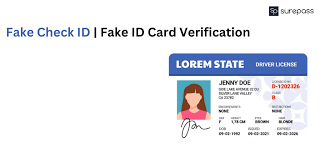 Delaware Fake ID
Delaware Fake ID
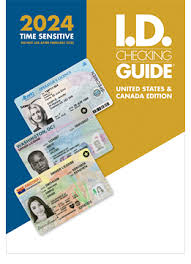 Arizona Fake ID
Arizona Fake ID
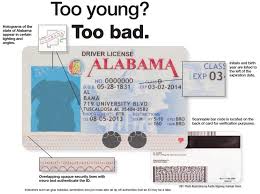 Illinois Fake IDs
Illinois Fake IDs
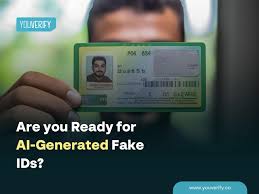 Best Illinois Fake ID
Best Illinois Fake ID
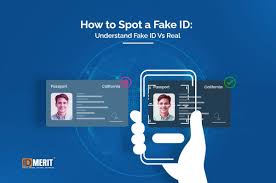 Personalized Illinois Fake ID
Personalized Illinois Fake ID
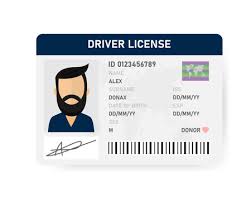 Custom Illinois Fake ID
Custom Illinois Fake ID
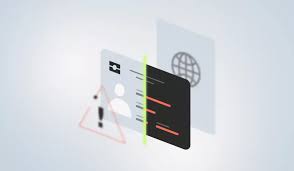 market analysis of fake IDs
market analysis of fake IDs
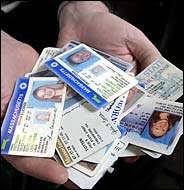 create photo ID
create photo ID
